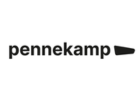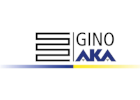European glass manufacturer Vetropack has introduced a 0.33-litre returnable bottle as a standard solution for the Austrian brewing industry.
The bottle is one-third lighter than its conventional reusable counterpart, and more than two thirds of the material used in production is recycled glass.
The bottles have been made available to the entire brewing industry to help meet the quota on returnables, which became mandatory in Austria at the start of this year.
Returnable systems with standardised bottles offer economic and environmental benefits: they reduce logistics costs, shorten transport routes, save valuable resources and thus lower CO2 emissions.
The bottles are tempered with Vetropack’s Echovai technology, which makes them robust while simultaneously reducing their weight.
Erich Jaquemar, Strategic Account Manager at Vetropack in Austria, said: “The bottle is around 30% lighter than a traditional reusable bottle and has at least the same or better pressure and impact resistance.
“Due to fewer scuff marks on the contact surfaces, it can achieve around 20% more refill loops compared to conventional containers. At the same time, the bottle's stability offers a plus in food safety.”
Vetropack developed the shape of the bottle together with stakeholders such as Logistikverbund Mehrweg, the Austrian Brewers Association, and its members, including Stiegl, Egger, and Ottakring Brewery, under the leadership of Austrian brewery company Brau Union.
The result is a small version of the standard 0.5-litre returnable beer bottle with a height of 212 mm.
With this new standard, crates can be stacked in six tiers on each pallet.
Additionally, the bottle weight of 210 grams enables more rows of crates per pallet, which significantly reduces both transport costs and CO2emissions.
Important tests relating to stackability, storability and refilling were carried out at Brau Union's Wieselburg brewery.
Gabriela Maria Straka, Director Corporate Affairs, ESG Sustainability and member of the Management Board at Brau Union Österreich, said: “Buying reusable instead of disposable bottles saves valuable resources and up to 75% of CO2 emissions.
“With the bottle developed by our partner Vetropack, we are presenting a more ecological and economically attractive alternative to all those for whom shape, size or weight were previously an argument against reusable bottles.”
Gösser is the first Austrian beer to be launched on the market in the new standard bottles.



























